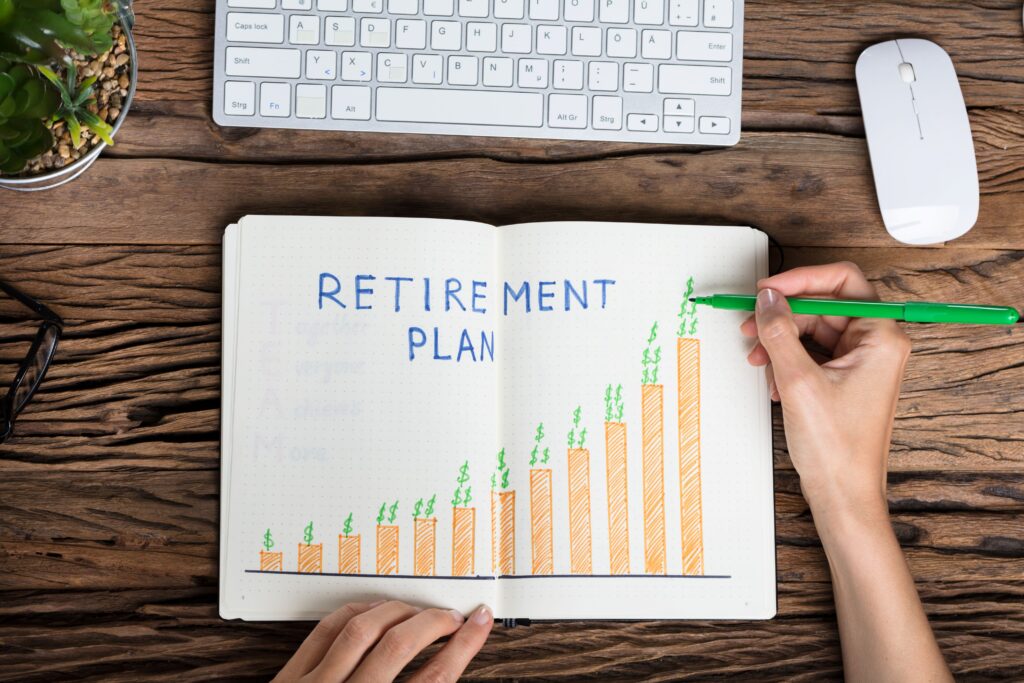Being your own boss is the dream, right? You call the shots, set your hours, and get the direct satisfaction of seeing your hard work pay off. But there’s a hidden responsibility that comes with the freedom of self-employment: planning for your own retirement. Unlike traditional employees with employer-sponsored retirement plans, you’re on your own to secure your financial future. This means you’re solely responsible for setting aside funds for your golden years.
While this may sound like a distant concern for now, neglecting retirement planning can leave you scrambling and vulnerable to financial insecurity when you least expect it. So, why exactly is taking charge of your retirement savings so crucial for self-employed individuals? This article will break down the key reasons as well as share with you the tools to build a secure future for yourself.
The Key Reasons Why Retirement Planning Is Important for Self-Employed Individuals
If you’re self-employed, here’s why taking charge of your retirement savings now is absolutely crucial:
Income Inconsistency
One of the biggest challenges self-employed individuals face is income inconsistency. One month, you’re swimming in invoices and projects, the next, it’s the lean season. Seasonal trends, economic hiccups, and the ever-looming threat of a business slump mean your income is about as predictable as a toddler’s mood swings.
Unlike those salaried employees who get a nice, consistent paycheck, you’re riding the income rollercoaster. And that makes it tough to sock away cash for retirement on the regular. When the money’s pouring in, retirement savings probably aren’t top priority. But then the lean times hit, and you’re scrambling just to keep the lights on. It’s a vicious cycle that can leave your golden years feeling ricketier.
That’s why having a solid game plan and taking advantage of retirement resources and seminars tailored for the self-employed is crucial. With the right prep work, you can hop off that wild income ride and sail smoothly into your retirement years.
Absence of Employer Benefits
Another drawback to the self-employment game is that you’re flying solo when it comes to retirement planning. The traditional employees with regular income generally get treated to a whole package of monthly benefit, including having their employer contribute to fatten up their retirement fund. It’s like getting a free money boost towards their golden years.
But for self-employed folks? That employer contribution is nowhere to be found. The full responsibility for squirreling away enough cash to retire comfortably falls directly on our shoulders. No company matching, no free rides: just you, your hustle, and whatever you can manage to sock away from your income. It’s a tough pill to swallow but being aware of this challenge allows you to plan accordingly and explore other savings strategies and financial goals.
The Lure of Reinvesting in Your Business
When your business is your baby, it’s tempting to reinvest every penny you earn back into its growth. Upgrading equipment, hiring additional staff, or expanding marketing efforts all seem like sensible ways to propel your business forward.
But here’s the tough reality: if you’re funneling every last cent into business expansion and investment decisions while letting your personal retirement savings stagnate, you could be setting yourself up for a world of financial hurt down the road. Successful businesses are incredible, but neglecting your nest egg now means you might find yourself still hustling well past a reasonable retirement age.
The key is striking that tricky balance between investing in your business’s momentum while also consistently chipping away at your future security. It’s a delicate dance, but one that’s absolutely crucial for long-term financial security and stability.
The Tax Advantages
This might sound counterintuitive, but retirement planning for the self-employed comes with some significant tax advantages. Many retirement accounts for self-employed individuals, like SEP IRAs and Solo 401(k)s, allow you to deduct contributions from your taxable income. This means you’ll pay less in taxes now while simultaneously saving for a comfortable retirement. Talk about a win-win!
Plan for Healthcare Costs
Healthcare costs are a major concern for everyone, but especially for retirees. As you age, your medical needs and healthcare expenses are likely to increase, and these expenses can put a serious strain on your finances. By planning and saving for retirement, you’ll be better equipped to handle unexpected medical bills and ensure you have access to quality healthcare in your golden years.
Build a Safety Net
As a self-employed individual, you’re no stranger to the unpredictable nature of life. Unexpected events like illness or injury can temporarily sideline you from working, and that’s where your retirement savings come into play. These funds act as a crucial safety net, providing you with a much-needed financial cushion and emergency fund during challenging times. With a substantial nest egg, you can focus on getting back on your feet without the added stress of financial insecurity weighing you down.
Peace of Mind for the Future
Imagine that you’ve reached retirement age, free from the daily grind of becoming a business owner or entrepreneur. You can finally pursue your passions, travel the world, fulfill your bucket list, or simply relax and enjoy time with loved ones. But this idyllic picture can quickly turn sour if you haven’t planned for your financial future. Retirement planning brings peace of mind. It allows you to envision a future free from financial worries and filled with the financial independence to pursue your dreams.
Taking Action: How To Build Your Retirement Plan
Now that you understand the importance of retirement planning for the self-employed, it’s time to take action. Here are some practical steps to get you started:
Estimate Your Retirement Needs
The first step is figuring out how much money you’ll need to live comfortably in retirement. Consider your desired retirement lifestyle, potential healthcare costs, pension plans, possible everyday expenses, and any outstanding debts. If you’re planning for early retirement, you need to consider that as well. There are online retirement calculators and other retirement planning tools available that can help you estimate this number. Don’t be afraid to adjust as your circumstances change.
Choose the Right Retirement Account
There are several retirement account options available for the self-employed, each with its own contribution limits and tax advantages. Popular choices include:
- SEP IRA: This option allows for high contribution limits but limits your investment options to IRAs.
- Solo 401(k): Offers greater flexibility for investments, similar to traditional 401(k)s, but comes with some administrative complexities.
Research each option carefully to determine which best suits your needs and risk tolerance. Consulting with a financial advisor can also be extremely helpful in navigating these choices.
Set Realistic and Consistent Savings Goals
Don’t overwhelm yourself by trying to save a huge chunk of retirement income right away. Start with a realistic percentage of your earnings and gradually increase it as your business grows. Setting up automatic contributions ensures you’re saving consistently, even during busy periods.
Explore Additional Income Streams
Diversifying your income sources can add a layer of security and potentially boost your retirement savings and emergency funds. Consider passive income sources like rentals, royalties from creative work, or various investment strategies.
Revisit and Revise Your Plan Regularly
As your income, business, and personal life evolve, your retirement plan needs to adapt as well. Regularly review your progress, adjust your contribution amounts if necessary, and re-evaluate your investment strategy and long-term goals based on market conditions and your risk tolerance.
Takeaway
Remember, building a secure retirement takes time and dedication. By starting early, prioritizing consistent savings, and taking advantage of the available retirement plans, self-employed individuals can achieve financial freedom and peace of mind in their golden years.


